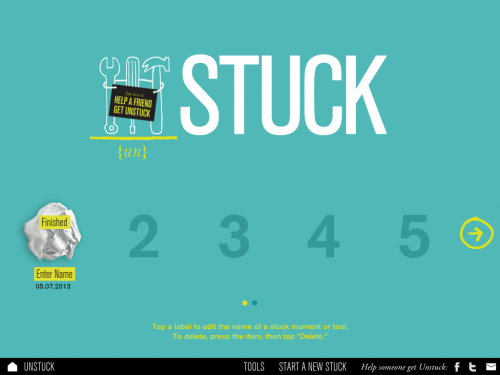Snoopy always started with the infamous phrase, “it was a dark and stormy night.” Perched at a typewriter on top of his iconic doghouse, he never had a blank page.
However, for most of us, that blank page looms every once in a while. You’re writing copy on a deadline, you’re embarking on your own book project, or even writing a blog post like this one, and your brain refuses to communicate words to your fingers. Writer’s block has smacked you in the face. What do you do?
This article will offer some fresh ideas to help you overcome writer’s block and start writing.
Do most of the work before you sit down.
Your brain is a wondrous tool, and it can work out problems best when you’re not actively thinking about them. According to a Carnegie Mellon research project, having a “distractor task” actually helps your brain solve the primary problem. If you’re trying to write on a specific subject, looking for a hook or theme, discipline yourself to think about the assignment before you go to bed (or before you jump in the shower). Then go about your business. If your mind rolls over the assignment, let it, but don’t fixate. Using this method, half of your writing could be done before you type a word!
Take care of the first sentence.
Like Snoopy, you could use a jumping off point that takes the edge off of that empty space. You can even use “it was a dark and stormy night” if you like. Or go to your bookshelf and “borrow” an interesting first sentence (just be sure to replace it once your writer’s block is resolved). Sometimes having the first sentence out of the way is all you need to get going. Another idea is to use an overheard sentence as your creative spark. After all, many of us do our best writing in a coffee shop, right?
You must also develop a system for jotting down those brilliant thoughts when they occur to you (regardless of whether they’re immediately usable). Use Evernote, a paper journal, or your phone’s Notes app to retain phrases, sentences, or topics that inevitably assail you as soon as you’re not trying to write.They can then become jump-off points for your next writing session. I often have 3 or 4 articles in progress at any time, and I use Google docs to organize and flesh out these “article stubs.”
Read more.
I know, you don’t have time to read because you’re on a deadline. However, the more widely you read, the more you’re feeding your mind. Make time to read long- and short-form articles, novels, poetry, and classics, on lots of subjects. One good source of literary suggestions is the Brain Pickings blog and newsletter, which often surfaces writing I would have otherwise missed. Then, take that inspiration and use it to write your own classic.
Try a change of scenery or equipment.
Just like an insomniac shouldn’t toss and turn in bed, the blocked writer shouldn’t force herself to sit at the computer screen waiting for an idea. If you typically write at your kitchen table, try going out to a coffee shop. Stuck at home? Listen to coffitivity while you work.
If you always write longhand, try using a computer instead. You need to drastically disrupt the blocked pattern, so do something out of the box. Take your laptop to the beach, record some voice notes, switch up the music you are listening to (or turn off the music completely).
Another way to approach this disruption technique is to change the format of what you’re writing. If it’s supposed to be a blog post, try developing it as a video instead. If it’s a report of some kind, consider creating it as a slide deck. Often we get trapped in writer’s block because the expected structure is too constricting.
Read (and practice) “the Artist’s Way.”
There’s a reason why Julia Cameron’s book has been a global phenomenon for the last 25+ years. One of the key practices outlined in the book is the “morning pages,” three longhand written pages of freeform writing. This is not a journal or a diary, it is intended to be a “mind-decluttering” project. It will teach you to stop censoring your thoughts, which flow to your writing. This self-censoring is yet another reason we get “writer’s block.”. We think “it won’t be good enough,” “I don’t have anything to say,” or “my ideas aren’t special.” Committing to the morning pages routine will help you get out of your own way and get the words flowing again.
For the blocked writer, the most important thing is to stop the mental processes that cause the block itself. Since every person is unique, the solution to each person’s block will be unique as well. Try each of the ideas above, and one of them just may help you get momentum and complete your writing project.
Please share your own ideas in the comments as well!
Author’s Bio: Rosemary O’Neill is an insightful spirit who is CEO of Narrative, a new social content platform where the members are in charge. You can find Rosemary on Twitter as @rhogroupee
Featured image: Photo by Steve Johnson on Unsplash




